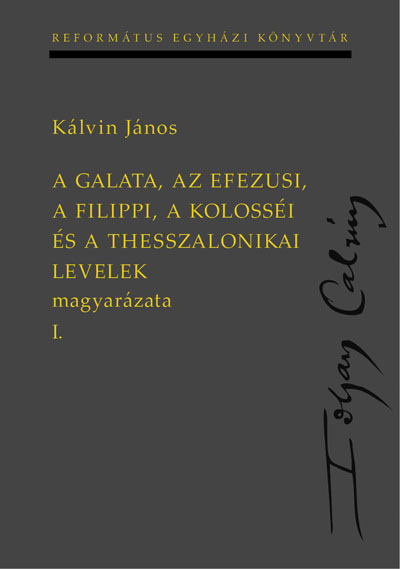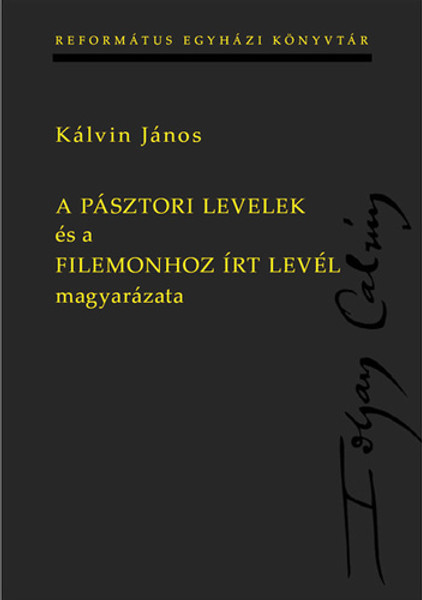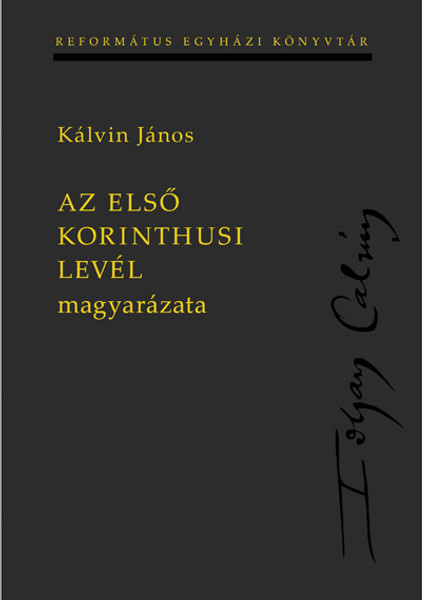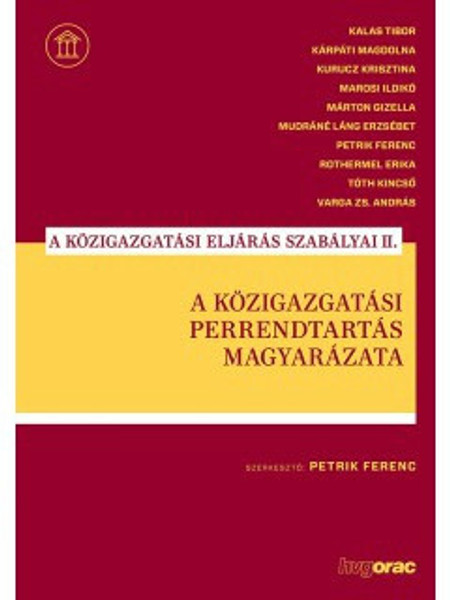Description
A Galata, Efezus, Filippi, Kolossé és a Thesszalonikai levelek magyarázata I. By John Calvin
Hungarian Translation of Calvin's New Testament Commentaries: Galatians, Ephesians, Philippians, Colossians and Thessalonians
Product Details / Termékadatok
- Format / Formátum: Hardcover
- Publication Year / Kiadás éve: 2016
- ISBN: 9789635583416, 978-9635583416
- ISBN-10: 9635583419
- Pages / Oldalak száma: 280 + 284 (Two Volumes / Két kötet)
- Publisher / Kiadó: Kálvin Kiadó
Overview / Áttekintés
Hungarian Summary / Magyar Összefoglaló:
Ez a kötet John Calvin klasszikus kommentárjainak magyar fordítása, amely a Galatákhoz, Efezusiakhoz, Filippiekhez, Kolosséiakhoz és Thesszalonikaiakhoz írt levelekre fókuszál. Calvin éleslátó teológiai elemzései és praktikus magyarázatai az Újszövetség eme fontos könyveit közelebb hozzák az olvasókhoz. A könyv a református teológiai hagyományok szellemében íródott, és segíti a hitben való elmélyülést.
English Summary / Angol Összefoglaló:
This volume presents the Hungarian translation of John Calvin’s classic commentaries on the Epistles to the Galatians, Ephesians, Philippians, Colossians, and Thessalonians. Calvin’s insightful theological analyses and practical explanations bring these essential New Testament books closer to readers. Rooted in the Reformed theological tradition, this commentary helps deepen one’s faith and understanding.
About the Author / A szerzőről
John Calvin (1509–1564) was a pivotal figure of the Protestant Reformation, renowned for his theological insights and pastoral care. His work laid the foundation for Reformed theology, particularly emphasizing God’s sovereignty and the doctrines of predestination and grace. Calvin’s Institutes of the Christian Religion and his extensive biblical commentaries continue to influence Christian thought worldwide.
Kálvin János (1509–1564) a reformáció meghatározó alakja, teológus és lelkipásztor volt. Munkássága, különösen a Keresztyén vallás rendszere és a Bibliakommentárjai, máig hatással vannak a keresztyén gondolkodásra és a református teológia alakulására.
Key Themes / Főbb Témák
-
Faith and Works / Hit és cselekedetek: Calvin’s exploration of Paul’s teachings on the relationship between faith, grace, and good works.
Calvin részletesen elemzi Pál tanításait a hit, a kegyelem és a jó cselekedetek kapcsolatáról. -
Christian Unity / Keresztyén egység: Insights into Paul’s vision for unity among believers.
Pál egységről szóló víziójának részletes magyarázata. -
Encouragement and Hope / Bátorítás és remény: The letters’ messages of perseverance and hope in Christ.
A levelek üzenete a Krisztusban való kitartásról és reményről.
Interesting Facts / Érdekes tények
-
Calvin wrote his commentaries in the 16th century, yet they remain relevant for modern theology and Christian practice.
Calvin kommentárjai a 16. században íródtak, de ma is meghatározóak a teológiában és a keresztyén életben. -
This Hungarian edition includes detailed annotations and context for contemporary readers.
Ez a magyar kiadás részletes jegyzetekkel és magyarázatokkal segíti a mai olvasókat. -
Calvin’s work offers a unique combination of doctrinal depth and practical application.
Calvin munkája a tanbeli mélység és a gyakorlati alkalmazás egyedi ötvözetét nyújtja.
Product Features / Termékjellemzők
-
Detailed Exegesis: Verse-by-verse commentary that combines theological and practical insights.
Részletes exegézis: Versről versre haladó kommentár teológiai és gyakorlati meglátásokkal. -
Two-Volume Edition: Comprehensive coverage across two sturdy hardcover volumes.
Kétkötetes kiadás: Átfogó tartalom két tartós keménytáblás kötetben. -
Reformed Perspective: Rooted in Calvin’s deep commitment to Scripture and Reformed theology.
Református nézőpont: Calvin elkötelezett Írás- és református teológiai szemléletéből táplálkozva.
Publishers / Kiadók
Kálvin Kiadó is dedicated to publishing high-quality theological and biblical literature that upholds Reformed Christian traditions and values.
A Kálvin Kiadó a református keresztyén hagyományokat és értékeket képviselő, magas színvonalú teológiai és bibliai irodalom kiadására specializálódott.
We value your feedback! / Fontos számunkra a véleménye!
How has Calvin’s commentary enriched your understanding of Paul’s epistles? Share your thoughts to inspire others in their study of God’s Word.
Hogyan segített Kálvin kommentárja Pál leveleinek jobb megértésében? Ossza meg véleményét, hogy másokat is ösztönözzön Isten Igéjének tanulmányozására!
Hashtags / Hashtagek
#AGalataEfezusFilippiKolosséLevelekMagyarázata #JohnCalvin #KálvinJános #Reformáció #Bibliakommentár #PálApostolLevelei #KálvinKiadó #BiblicalCommentary #ReformedTheology










